APC’s internal management transition in 2017 turned out to be a very smooth process thanks to the commitment from both our outgoing director, Anriette Esterhuysen, and our incoming director, Chat Garcia Ramilo.
These changes in the management of APC brought new approaches to the leadership of our programmes and new visions that will help us to continue being a vibrant organisation, one that is very well recognised globally for enabling people to access a free and open internet, improving their lives and creating a fairer world, as our mission states.
Throughout the year we were looking back to our roots, when most of our members focused on providing access to the internet to activists and organisations working for development, given that 50% of the world’s population is still not connected and most of them live in developing countries and in rural areas. This situation has led us to make a greater effort to put forward new initiatives to connect these communities by providing new solutions based on free and open source software and hardware that nowadays can provide a new opportunity to bring connectivity at an affordable cost.
APC members have been working for a very long time with grassroots organisations and we know first-hand about their difficulties in attaining reliable and affordable internet connections. They have been waiting for a long time to get connected by traditional commercial providers, which are denying them this access, arguing that it is not economically feasible to implement the infrastructure needed, especially in rural areas.
Deploying community networks is a new alternative for these communities that are still unconnected or underconnected. Experiences from APC members that have been implementing different models of community networks, like Rhizomatica in Mexico, Pangea in Catalonia, AlterMundi in Argentina and Zenzeleni in South Africa, are inspirational models where the communities operate their own networks and provide connectivity to themselves. They have both inspired and supported us in bringing these alternatives to other countries like Colombia, where my organisation, Colnodo, is replicating them in different scenarios in rural areas.These initiatives have raised new challenges, especially in relation to guaranteeing access to spectrum in order to carry out the deployment of these community networks. This is especially important for initiatives such as cellular community networks, where the spectrum is usually assigned to telecommunications companies that maintain a monopoly on communications without leaving space for these alternatives.
The work of APC and its members in this field has initiated high-level discussions to ensure that global policies recognise these initiatives as viable and reliable solutions to connect these communities.
Having APC as a platform to influence access-related policies is essential for connecting these communities and for other APC programmes to have a greater impact in these communities, which historically have been denied the benefits of connectivity.
Great challenges await us, but it is very satisfying for me to see the evolution of our organisation and network adapting to new challenges and continuing to work on providing people with a free and open internet for all.
Julián Casasbuenas G.
Former Chair of the APC Board of Directors from 2014 to 2017
